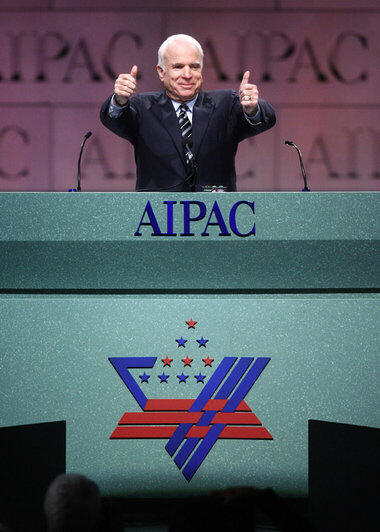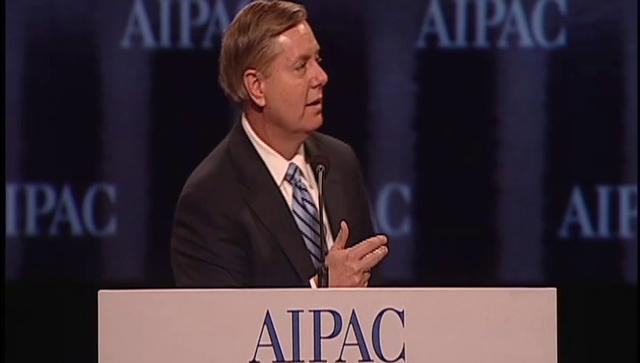– McCain, Graham call US-Russia agreement on Syria ‘meaningless’ (FOX News, Sep 14, 2013):
Sens. John McCain and Lindsey Graham criticized the U.S.-Russia agreement Saturday to disarm Syria of its chemical weapons, calling it “meaningless” and saying the agreement sends the wrong signal to Iran, which is suspected of building a nuclear weapon.
The Republican senators said the framework agreement reached by Secretary of State John Kerry and Soviet Foreign Minister Sergey Lavrov is toothless without the U.N. Security Council Resolution that threatens the use of force should Syrian President Bashar al-Assad fail to comply.
The U.S. and Russia reached the agreement to secure and destroy Syria’s chemical weapons by mid-2014, and impose U.N. penalties if the Assad government fails to comply.
“Assad will use the months and months afforded to him to delay and deceive the world using every trick in Saddam Hussein’s playbook,” the Republican senators said in a statement. “It requires a willful suspension of disbelief to see this agreement as anything other than the start of a diplomatic blind alley, and the Obama administration is being led into it by Bashar Assad and [Russian President] Vladimir Putin.”
The senators, who visited Syria in May, reiterated their position that the United States should arm Assad opposition forces in the roughly 2-year-long civil war, in which roughly 100,000 people have been killing and millions have fled.
“The only way this underlying conflict can be brought to a decent end is by significantly increasing our support to moderate opposition forces in Syria,” the statement said. “We must strengthen their ability to degrade Assad’s military advantage, change the momentum on the battlefield, and thereby create real conditions for a negotiated end to the conflict.”
It remains unclear whether Syria had signed onto the agreement, which requires the Middle East country to submit a full inventory of its stocks within the next week.
Under the framework agreement, international inspectors are to be on the ground in Syria by November. During that month, they are to complete their initial assessment and all mixing and filling equipment for chemical weapons is to be destroyed.
Noncompliance by the Assad government or any other party would be referred to the 15-nation U.N. Security Council by the Organization for the Prohibition of Chemical Weapons. That group oversees the Chemical Weapons Convention, which Syria this week agreed to join.
The U.S. and Russia will press for a Security Council resolution enshrining the chemical weapons agreement under Chapter 7 of the U.N. Charter, which can authorize both the use of force and nonmilitary measures.
But Russia, which already has rejected three resolutions on Syria, would be sure to veto military action.
President Obama several weeks ago said the U.S. must launch a punitive military strike against Assad, whom he thinks ordered an Aug. 21 chemical attack that killed nearly 1,500 of his own people.
However, a diplomatic solution, regardless of its beginnings, appears to have come at a good time for Obama, considering polls and surveys shows Congress, the American public and other world leaders have very limited support for strike, likely missiles launched from U.S. ships in the eastern Mediterranean Sea.
The Associated Press contributed to this report.

